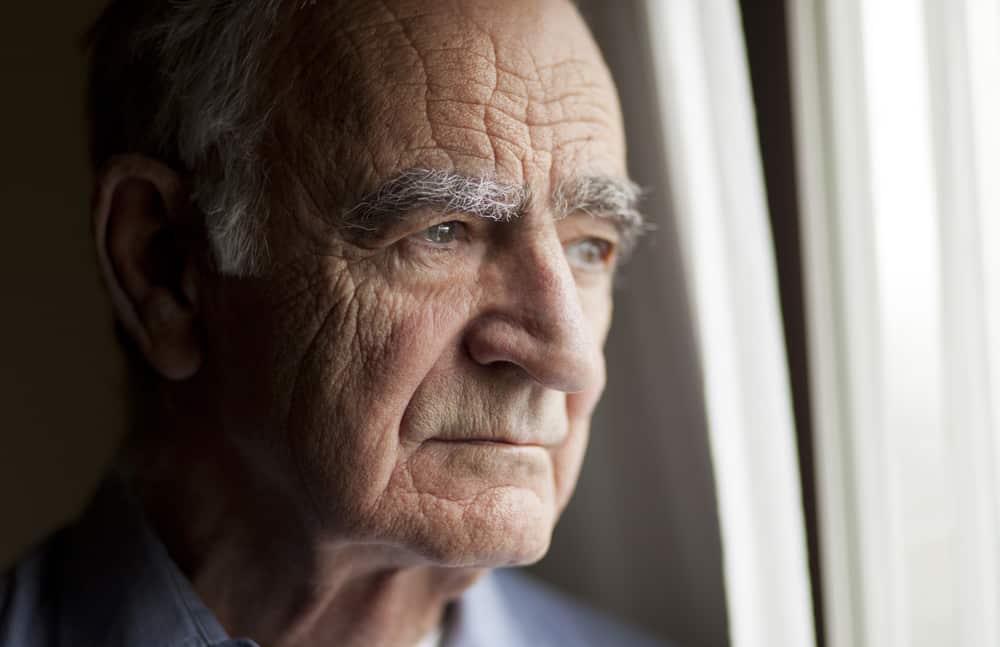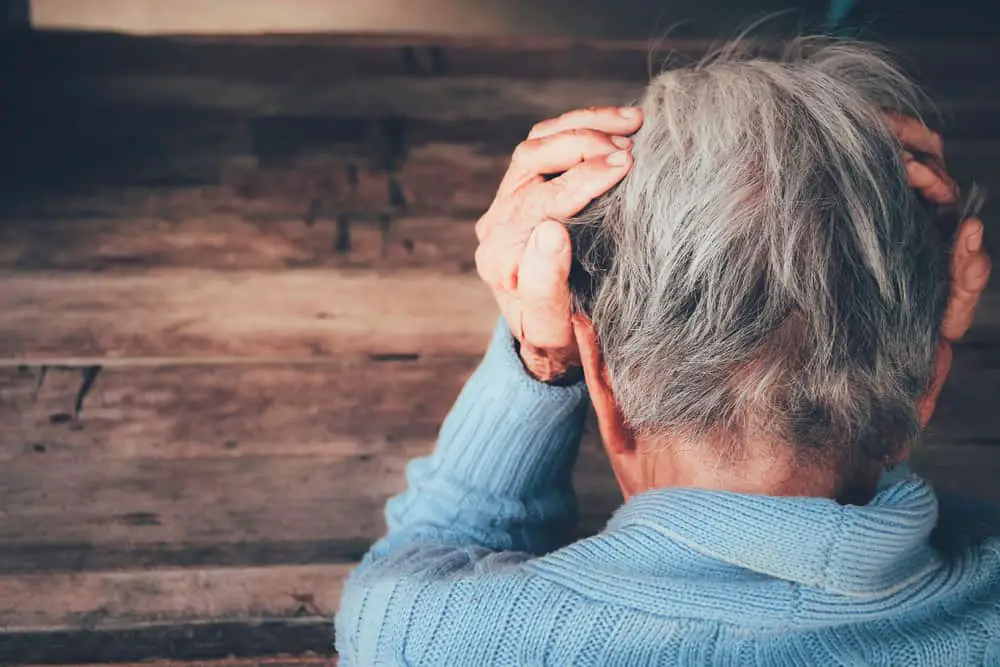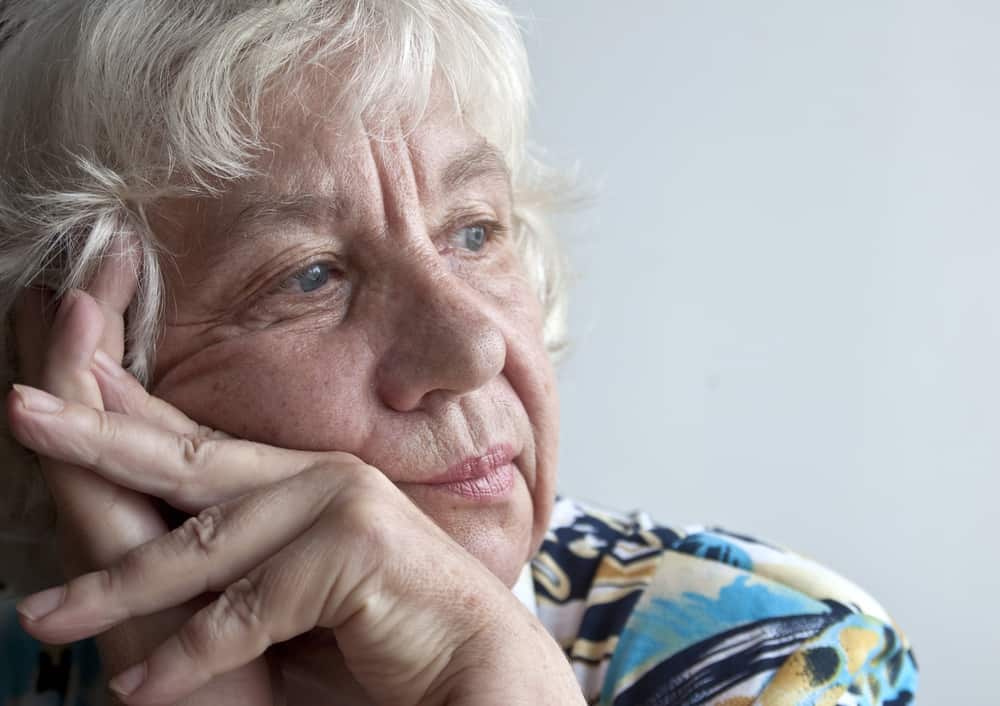
Question: What causes depression in older adults? Answer: Reality. So let’s get real about reality, shall we? For starters, many seniors would like to dispense with that mythological term the “golden years.”
It brings to mind a scenario witnessed in my mother’s LTC cafe where a 70-something caretaker sat visiting with her 90-something mother. Someone referred to the “golden years” to which she responded in exasperation “WHAT golden years?”
As seniors, we move more slowly. We think more slowly. We have latent recall or sometimes none. Healing anything takes longer and our immune system can offer a lot of “WHAT now?” moments. Our hair falls out and our joints give us grief. Younger generations see us as burdensome and irrelevant. And ageism rears its ugly head frequently.
Then doctors inform us we no longer qualify for or need certain diagnostic tests. The inference is we won’t live long enough for any new cancers to develop so why waste precious healthcare resources screening for them? How’s that for an upper? What causes depression in older adults? Let me count the ways.
Depression may not be a normal aspect of aging – but it is justifiable.
Causes and Symptoms of Depression in Older Adults
Depression can affect anyone, regardless of age, gender, or background. However, it is a common misconception that depression is a normal part of aging. While it is true that seniors face unique challenges that can contribute to feelings of sadness or loneliness, depression does not have to accompany aging.
Depression in Seniors is a mental health disorder that causes persistent feelings of sadness, hopelessness, and loss of interest in activities that were once enjoyable. It can be caused by a variety of factors, including chronic illness, physical limitations, and social isolation. Depression should not be considered a normal part of aging, and seniors should not be expected to simply “tough it out” or accept it as a natural condition of growing older. There are remedial interventions available, some we ourselves initiate, others available through the medical profession or therapists.
Risk Factors
There are several risk factors that can increase the likelihood of developing depression, including a history of depression or other mental health disorders. Chronic illness, physical limitations, and social isolation can all play a role.
Interventions
Question: What is the safest and best antidepressant for older adults? Answer: Getting and staying physically active, maintaining social connections, and seeking treatment for chronic health conditions.
Keep learning and exploring this incredible world around us! If you are physically limited, you can do this from your keyboard. Every morning Microsoft displays on my computer beautiful images of this planet along with information about each location – for free. You can travel from home just using your keyboard.
Understanding Depression in Older Adults
As you age, you may experience a range of emotions, including sadness, loneliness, and fear of death. Depression may be a common condition among older adults, but it is treatable. It affects how you feel, think, and behave. It can cause a variety of symptoms, including feelings of worthlessness, loss of interest in activities you once enjoyed, and thoughts of suicide. The awareness that our options are now limited can be traumatizing. Life is so short and suddenly we’re in the senior citizen demographic.
Symptoms in older adults can be different from those in younger people. Older adults may have aches, pains, and other physical problems, making it difficult to diagnose depression. They may also isolate themselves from others, have memory loss, or have problems concentrating.
If you or a loved one is experiencing symptoms of depression, it is important to seek help. Mental health services are available to help you manage your symptoms and improve your quality of life.
If you are feeling hopeless or have thoughts of suicide, it is important to seek help immediately. You can call the National Suicide Prevention Lifeline at 1-800-273-TALK (1-800-273-8255) for support and resources.
Depression in older adults is not a sign of weakness or a personal failing. It is a treatable medical condition that can be managed.

Risk Factors
While anyone can get depressed, there are certain risk factors that increase your chances of experiencing it. Here are some of the most common:
Medical Conditions
Having a medical condition can increase your risk of developing depression. Chronic health conditions such as heart disease, stroke, cancer, diabetes, hypertension, and chronic pain can all contribute to feelings of sadness, hopelessness, and helplessness.
Family History
If you have a family history of depression, you may be more likely to develop the condition yourself. Genetics can play a role, so it’s important to be aware of your family history.
Social Isolation
Social isolation is a major risk factor for depression in older adults. Living alone, having limited social support, and feeling disconnected from others can contribute to feelings of loneliness and sadness.
Retirement, Disability and Financial Concerns
Retirement and disability can be major life changes that contribute to the development of depression. Losing a sense of purpose or identity can be difficult to cope with, so it’s important to find new ways to stay engaged and active. Retirement may also herald financial concerns if retirement savings are inadequate.
Substance Abuse
Substance abuse, including alcohol and prescription drug abuse, can increase your risk of developing depression. Seek help if you’re struggling with substance abuse.
Falls and Fractures
Falls and fractures can be traumatic events that can contribute to the development of depression.
Take steps to improve your balance to prevent falls and please seek help if you’ve experienced a fall or fracture.
Other Risk Factors
Other risk factors for depression in seniors include ageism, stress, dementia, Alzheimer’s disease, and abuse. If you’re experiencing any of these, it’s important to seek help from a professional.
How To Help Seniors with Depression
The diagnosis of depression typically involves a healthcare provider, such as a primary care doctor or psychiatrist, who will evaluate your symptoms and medical history.
The American Psychiatric Association (APA) provides guidelines for diagnosing depression. According to the APA, a diagnosis of depression requires the presence of at least five of the following symptoms over a period of two weeks or more:
- Persistent sadness, anxiety, or “empty” mood
- Feelings of hopelessness or pessimism
- Irritability
- Loss of interest or pleasure in hobbies and activities
- Decreased energy or fatigue
- Difficulty concentrating, remembering, or making decisions
- Insomnia or excessive sleeping
- Appetite and/or weight changes
- Thoughts of death or suicide
Your doctor may also perform a physical exam and order blood tests to rule out any underlying medical conditions that may be causing your symptoms.
It is important to note that depression can often go undiagnosed in seniors due to the misconception that it is a normal part of aging. Or the stigma of shame: shame that we are actually suffering from depression.
Treatment Options
Medication
Antidepressants are a common medication used to treat depression. Selective serotonin reuptake inhibitors (SSRIs) are a type of antidepressant that can be effective in treating depression in older adults. It is important to work with your doctor to find the right medication and dosage and help manage any side effects.
Therapy
Psychotherapy is a type of therapy that can help you manage your depression. It can be done one-on-one with a therapist or in a group setting. Therapy can help you identify and change negative thought patterns and behaviors that contribute to your depression. Cognitive-behavioral therapy (CBT) is a type of therapy that has been shown to be effective in treating depression in seniors.
Lifestyle Changes
Regular exercise, healthy eating, and getting enough sleep can all help improve your mood. You may also want to consider joining a support group or engaging in activities that you enjoy.
Electroconvulsive Therapy (ECT)
Electroconvulsive therapy (ECT) is a treatment option for severe depression that does not respond to medication or therapy. ECT involves sending electrical currents through the brain to induce a seizure. While ECT can be effective, it is generally reserved for severe cases of depression.
Counseling
Counseling can be helpful for seniors who are experiencing depression and anxiety. A counselor can provide support and help you develop coping strategies to manage your depression.
Role of Family and Social Network
As we age, our social network may shrink due to things such as retirement, loss of a spouse or friends, and physical limitations. This can lead to feelings of loneliness and depression, which can have a negative impact on mental and physical health. However, having a strong social support system can help prevent or alleviate depression. Socializing with people from different generations is stimulating and recommended. Older adults still require connection and engagement with the world around them, as small as that might have become.
One of the most important sources of social support is family. Your family members can provide emotional support, practical assistance, and companionship. They can also help you maintain a sense of purpose and meaning in life. Spending time with your grandchildren, for example, can be a source of joy and fulfillment.
In addition to family, your social network can include friends, neighbors, and community members. Joining social clubs, volunteer groups, or religious organizations can help you meet new people and build friendships. Having a diverse social network can provide a sense of belonging which is so important as we age.
In summary, having a strong social support system is a drug-free method to improve your mental health and prevent depression. Your family, friends, and community can provide emotional support, practical assistance, and companionship. Maintaining social connections is an important aspect of healthy aging, and there are many ways in which you can build and maintain a social network.

Prevention and Management
Depression is a serious business. It’s not just a case of the blues. Here are some ways to prevent depression in seniors:
- Stay physically active: Regular exercise can improve mood and reduce the risk of depression. Even light exercise, such as walking, can be beneficial.
- Eat a healthy diet: A balanced diet with plenty of fruits, vegetables, and whole grains can help improve overall health and reduce the risk of depression.
- Manage stress: Stressful life events can trigger depression, so it is important to find ways to manage stress. Try relaxation techniques, such as meditation or deep breathing, or talk to a mental health professional.
- Avoid benzodiazepines: These drugs are often prescribed for anxiety or sleep problems, but they can increase the risk of depression and should be avoided if possible.
- Treat medical illnesses and disabilities: Chronic illnesses and disabilities can increase the risk of depression, so it is important to manage these conditions and seek treatment when necessary.
How do you help older adults suffering from depression?:
- Talk to a mental health professional: A therapist or counselor can help you work through your feelings and develop coping strategies.
- Consider medication: Antidepressant medication can be effective for some people with depression. Talk to your doctor about the risks and benefits.
- Stay active: Regular physical activity can help improve mood and reduce symptoms of depression.
- Get enough sleep: Lack of sleep can worsen depression, so it is important to get enough restful sleep each night.
- Avoid alcohol and drugs: Substance abuse can worsen depression and increase the risk of suicide.
- Seek help for suicidal thoughts or attempts: If you are experiencing suicidal thoughts or have attempted suicide, seek immediate help by calling a crisis hotline or going to the emergency room.
Finally, remember that depression is not terminal, it is treatable.
Resources and Support
If you or a loved one is experiencing depression, know that you are not alone.
One great resource is the National Institute of Mental Health (NIMH). They offer information on depression, including symptoms, treatment options, and research. You can visit their website for more information on depression in older adults and other mental health topics.
Another helpful resource is Medicare. They offer coverage for many mental health services, including therapy and medication. If you have Medicare, be sure to talk to your doctor about what mental health services are covered and how to access them.
In addition to these resources, many support groups and organizations devoted to helping people with depression are there for you. The Depression and Bipolar Support Alliance (DBSA) is one such organization offering support groups and educational resources for people living with depression and bipolar disorder.
Remember that seeking help for depression is a sign of strength, not weakness. Reach out when you’re overwhelmed. You deserve to live a happy, productive, healthy life, and there are people and organizations who can help you become the best older adult you can be.

